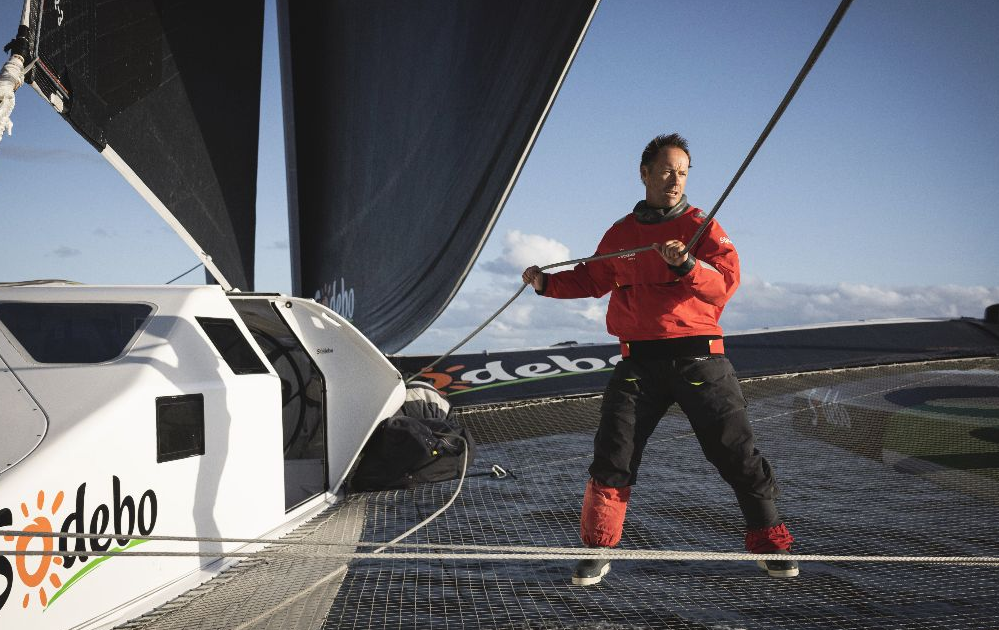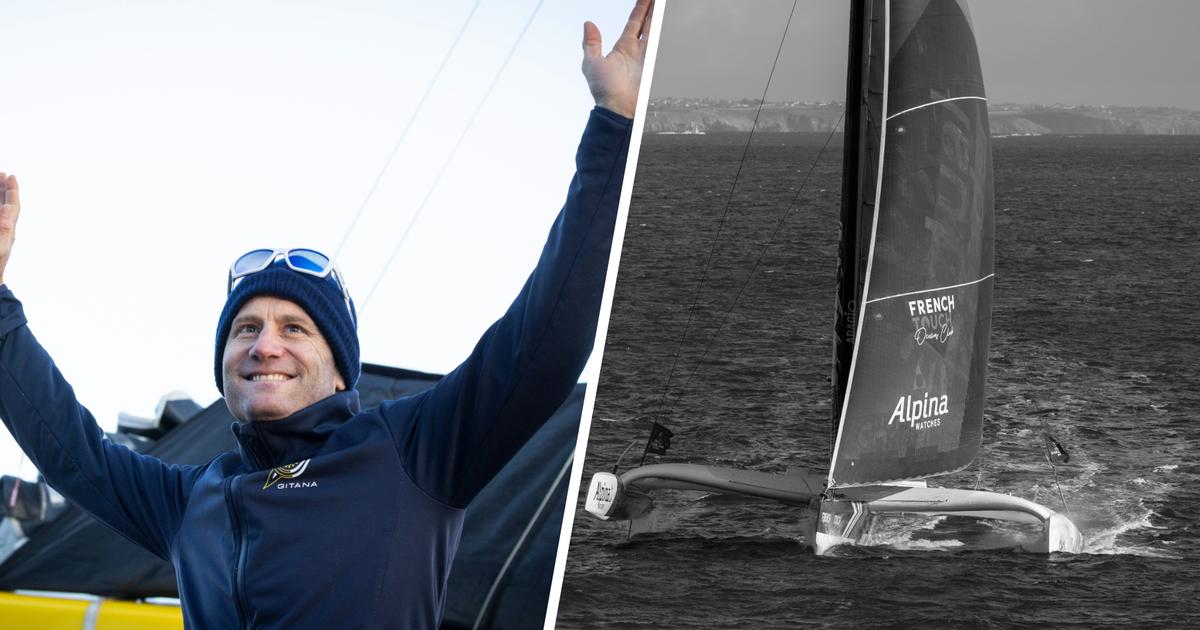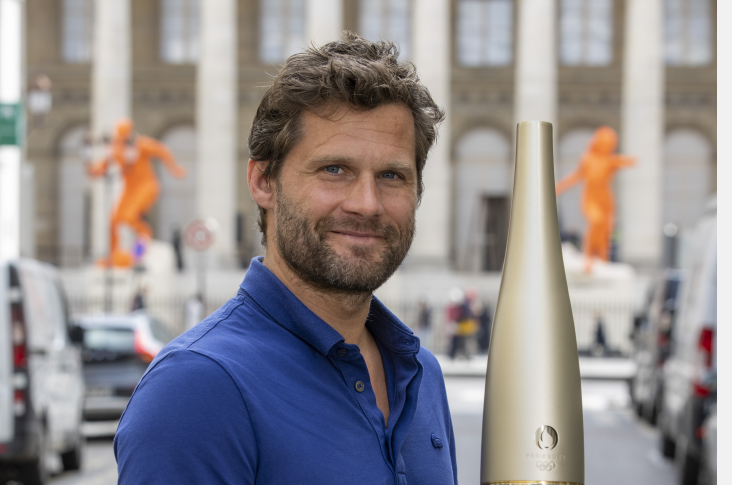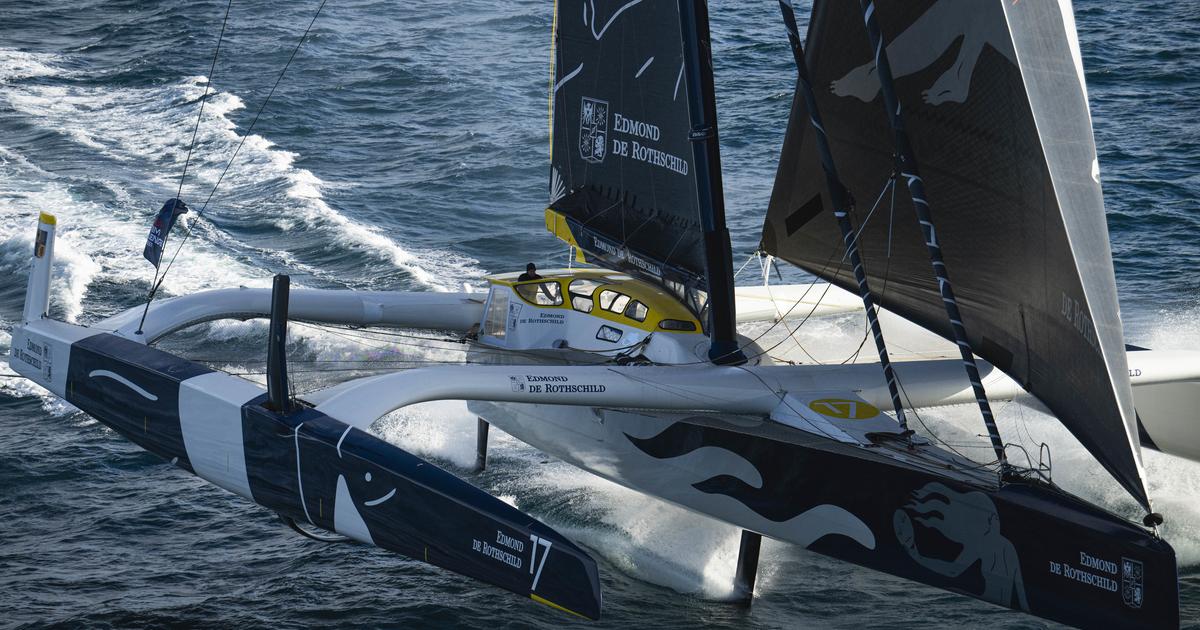Mike Horn, Armel Le Cléac'h, Bertrand Piccard or Laurence de la Ferrière… Four adventurers, experienced in extreme conditions, give us their tips and advice to better live this period of confinement due to the epidemic of Covid-19, which will enter its third week and will last at least until April 15.
Mike Horn: "Replace fear with hope"
Mike Horn, the 53-year-old South African backpacker, is confined to Hong Kong. His achievements: round the world following the line of the equator and the polar circle, crossing the Antarctic alone, ascent of four 8000 m in the Himalayas ...
"We must respect fear, listen to it, because it is sometimes beneficial, but above all it must not paralyze otherwise it prevents us from living. You then die inside you, you have no more plans. Why be afraid of things that are probably not going to happen? Fear can be more dangerous than the virus. It is a psychological illness. You have to know how to replace it with hope that gives energy. When we are afraid, we think that we are all alone in this situation. However, there are millions of people who are experiencing the same thing today. So no one is alone.
READ ALSO> Boris Cyrulnik: "The Covid-19 reveals archaic fears"
Just being aware of it has a positive impact on our morale. When I am in difficulty in my expeditions, I grow flowers in my head, I pull up the weeds, I only keep constructive thoughts. With projects, time passes much faster. I do not listen to the negative to make decisions. This makes me stronger and more resistant to the obstacles to overcome, it helps me to surpass myself. I never imagine dying.
Newsletter - The essentials of the news
Every morning, the news seen by Le ParisienI'm registering
Your email address is collected by Le Parisien to allow you to receive our news and commercial offers. Find out more
VIDEO. Mike Horn prisoner of ice in November 2019
We have to think about ourselves, we are first of all our own source of inspiration. Then, we can become a source of inspiration for those who are more afraid than us, for those around us, our children, for example. But we cannot want to save the lives of others and kill ours at the same time because of our anxieties.
I live this period of confinement in a positive way. There, we really have time. Time is freedom. I feel much more free confined in an apartment than at the North Pole. Up there, it's walking or dying, no one can come to you. We are trapped by nature, we cannot escape when we are immobilized on fragile ice. Today, if things go wrong, you can come get me. For me, it's the luxury of having this possibility. "
Armel Le Cléac'h: "Keeping habits"
Skipper Armel Le Cléac'h, 42, is confined to Brittany. His track record: winner in less than 75 days of the Vendée Globe, solo round the world race in which he has participated three times and always finished on the podium
“When sailors go to sea, they have time to prepare. There, even if we could expect it, we found ourselves at home overnight, without being able to move. During a race, for three or four days, we still have our heads on the ground, it's the same thing this time, we get used to it gradually. After a few days, you get used to your new space. Personally, I will take the opportunity to do things that I had set aside, but I will do it well and not in a rush.
You have to try to keep a certain routine. On my boat, I keep certain habits, especially meal times. At sea, there are moments for DIY, weather, napping ... Since the confinement, with my family, we try to keep a rhythm. In the morning, we get up and get ready, as if we were going to school. Sleeping around will be for the weekend.
During this confinement, you have to know how to live together. It requires the establishment of simple rules of life. It's like on a boat: if there is one who does not put his oilskin in the right place and who wet the boyfriend's bag, it creates tension. The road to the finish can then be long. In solitary, what works well is communication. When you are alone on a boat, you are in contact with the land, by messaging, by telephone. Now may be the time to do it even more than before. Communication brings motivation, support.
We will go through ups and downs, through days when we will have the impression of being at the bottom of the hole. And the next day, a ray of sunshine will allow us to set out again. On a boat, you get used to clinging to simple things that cheer up. An email, a small message, a drawing of the children ... The confinement allows you to take a step back in life. Coming back from my three Vendée Globe, I realized how lucky we were to have access to many things easily. "
Bertrand Piccard: "The moment to create a relationship with yourself"
Swiss psychiatrist and aeronaut Bertrand Piccard, 62, is confined to Lausanne. His achievements: round the world balloon alongside the Briton Brian Jones and in a solar plane, co-pilot of Solar Impulse with his compatriot André Borschberg
“The confinement that we are experiencing is a unique event in history, moments, certainly that we have not chosen contrary to my adventures, but which are also extraordinary. You have to take them as an experience and take advantage of them to achieve things that you don't usually do.
An adventure is a crisis that we accept. A crisis is an adventure that is refused. Each confined person must make a choice, take a path: do I want to experience this as an adventure with its share of unforeseen events and discoveries or as a crisis, with its share of suffering?
We must also put the situation in a useful context. We imagined Solar Impulse to promote renewable energies. Well, by confining ourselves, we are useful to others by stopping the transmission of the virus. This is the time to create a relationship with yourself where you observe yourself living the experience. It's introspection.
VIDEO. Solar Impulse: Bertrand Piccard tells us about his "life in the sky"
Today, with social networks, we are dispersed, we no longer have contact with ourselves, no longer used to being alone. Family or couple confinement requires learning to communicate differently. Each must be able to express to the other in an extremely clear manner what he needs without this being perceived as a reproach.
With Brian Jones during the balloon round the world trip, I admitted to him at one point that I was not very reassured. He replied: I dared not talk about it, but I too died of fear. It's so much easier to say things. It was - 40 ° C outside, so I was very happy to be safe in the basket. Today, it's the same: we are better confined at home than outside. "
Laurence de la Ferrière: “Resetting our lifestyles”
Mountaineer and explorer Laurence de la Ferrière, 63, is confined to Chamonix (Haute-Savoie). Her record: the first and only woman in the world to have completely crossed Antarctica, solo and on skis
“The way we look at a situation will change the outcome. If you tell yourself that you will discover, during confinement, positive things about you, these will happen, it will be reality. If you lock yourself in, it will weaken you.
During my crossing of Antarctica, it was an ongoing struggle to eliminate everything that could weaken my mind. When I was in a dangerous situation, I would for example refrain from thinking of my daughters so as not to feel guilty about taking risks that could have made them orphans. You shouldn't be obsessed with the end date of containment.
We forget the goal. It is one step after another. We build ourselves according to a reasonable and acceptable space-time, a projection on a week for example. When you put the objective in parentheses, time flies faster. It must also be said that the longer it is, the better we will adapt. For three months of adventures, I needed about three weeks of adaptation.
The hardest part is to reach half. To understand positively your loneliness, it is useful to create a rhythm, new benchmarks, rituals set over 24 hours. I set up my tent, I heated my lunch box, I wrote my travel diaries… I chose a place where I was safe.
The sastrugi , these beautiful waves of ice sculpted by the wind and frozen by the cold, had something reassuring for me. I was totally receptive to what was around me. In our home containment, we have to reset our lifestyles, we build a cocoon where we will write, read, listen to music ... This helps us to find a balance. We appropriate our new life, we become an actor. "









